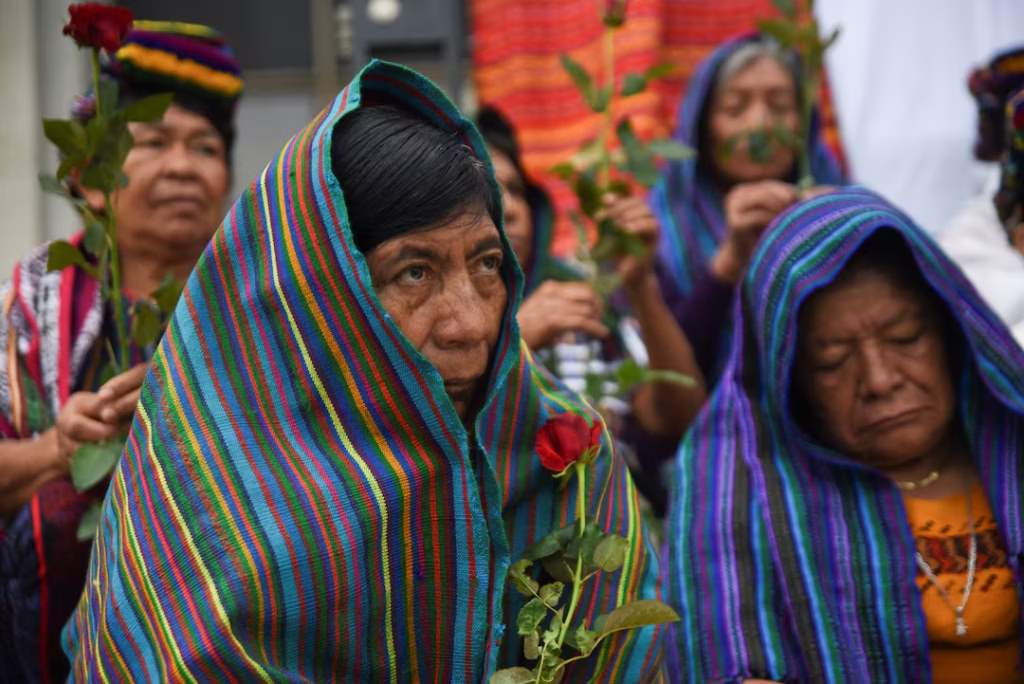GUATEMALA CITY — A Guatemalan high court on Friday sentenced three former paramilitary members to 40 years in prison each for raping six Indigenous Maya Achi women during the most violent years of the country’s 36-year civil war. The ruling marks a significant moment in the nation’s ongoing reckoning with wartime atrocities.

The crimes occurred between 1981 and 1983, a period marked by widespread state-led violence against Indigenous communities. The convicted men were part of the Civil Self-Defense Patrols, militias armed and directed by the Guatemalan military under the guise of fighting guerrilla insurgents.
One of the survivors, Paulina Ixpata, delivered harrowing testimony during the trial, which began four months ago. “The soldiers arrived late at night, threw me to the ground, and raped me,” she recounted, describing how she was held and assaulted repeatedly for 25 days. Her story, along with five others, formed the backbone of a prosecution that submitted over 160 pieces of evidence.
Presiding Judge María Eugenia Castellanos ruled the crimes constituted crimes against humanity, emphasizing the survivors’ ability to identify their attackers and the sites of abuse. “They were victims of crimes against humanity. The women recognized the perpetrators,” Castellanos said during sentencing.
This is the second trial in the high-profile Maya Achi case, which originated from 36 formal complaints filed between 2011 and 2015 against former military commissioners and patrolmen. The first trial, held in January 2022, resulted in five former patrolmen receiving 30-year sentences, and they remain behind bars.
The verdict follows a precedent set in 2016, when a Guatemalan court convicted two former military officers for holding 15 Q’eqchi’ women—also of Maya descent—as sex slaves at the Sepur Zarco military base. That historic ruling, the first of its kind in Guatemala, resulted in 360 combined years in prison and sparked international recognition of the country’s progress in prosecuting wartime sexual violence.
As part of Friday’s ruling, the court acknowledged the broader trauma experienced by Maya Achi women and underscored the systemic use of sexual violence as a weapon of war. While a reparations program was mandated in the Sepur Zarco case, progress remains slow, despite years of advocacy by the group known as the “Grandmothers of Sepur Zarco.”
The Maya Achi trial adds to a growing list of efforts in Guatemala to hold perpetrators accountable and shines a continued light on the struggle for justice and recognition for Indigenous victims of the civil war.



